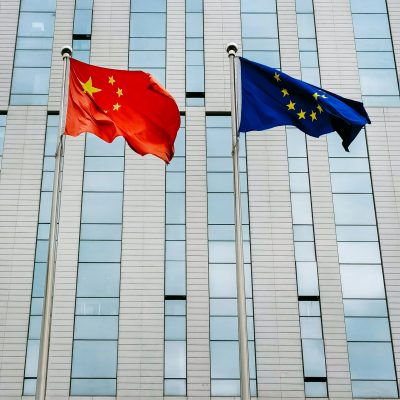Verdir la politique commerciale européenne : oui, mais comment ?
Pascal Lamy, président emeritus de l’Institut Jacques Delors, Geneviève Pons, directrice du bureau de l’Institut Jacques Delors à Bruxelles, et Pierre Leturcq, assistant de recherche à l’Institut Jacques Delors, sont à la recherche, dans cet article, de solutions concrètes pour concilier commerce et environnement.

« Le commerce est-il mauvais pour l’environnement ? ». Telle est la question toute simple posée le 11 juillet à 110 jeunes professionnels et étudiants originaires de 25 États membres et participant à la Budapest European Agora. 40% ont répondu positivement, 37% négativement et 23% ont admis qu’ils ne savaient pas. Ces résultats soulignent la complexité de cette interaction. L’heure est venue de démocratiser ce débat et de proposer des solutions concrètes.
Ceci est d’autant plus nécessaire que les élections de 2019 ont conduit à un rééquilibrage des forces politiques au Parlement européen, ce qui obligera à revoir l’articulation commerce environnement au niveau de l’UE, pour plusieurs raisons :
• L’importance accordée à la protection de l’environnement est l’un des principaux signaux politiques envoyés par les électeurs ;
• Par nature, il s’agit d’une question de bien public mondial, donc mieux gérée au niveau de l’UE ;
• L’UE est considérée comme ayant jusqu’à présent joué un rôle leader dans ce domaine de la gouvernance mondiale ;
• Le commerce constitue l’une des rares compétences de l’UE véritablement « fédéralisée» ;
• De ce fait, il constitue le principal levier de l’UE pour influencer l’agenda mondial, à commencer par les objectifs de développement durable (ODD).
Cette tendance a été confirmée par des évolutions notables depuis les élections, avec notamment la déclaration de la nouvelle Présidente de la Commission européenne en faveur de taxes carbone aux frontières (une première !) ou le débat croissant sur la préservation de la forêt tropicale, sujets qui ont émergé à l’issue de la conclusion de l’accord entre l’UE et le Mercosur après 25 ans de négociations commerciales bilatérales.
Même si les mesures commerciales ne sont pas considérées comme les « meilleures solutions » pour s’attaquer aux dégradations de l’environnement, il apparaît à la fois nécessaire et urgent de revoir la position de l’UE dans ce domaine, en abordant en premier lieu les aspects liés au dérèglement climatique, sans oublier pour autant des domaines tels que la biodiversité ou la gouvernance des océans . Cette question est extrêmement complexe ; elle nécessite des recherches analytiques et techniques approfondies dans de nombreux domaines, de nouveaux débats politiques et la recherche de solutions opérationnelles et
réalistes.






